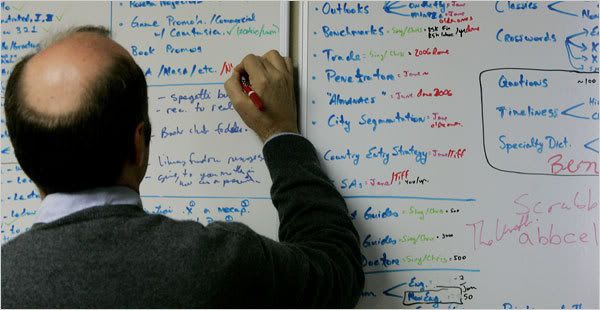 Forget about imagination; just generate a damn book and the advertising company will do the rest. Or, just generate a title and see if is anyone interested, then generate the damn book.
Forget about imagination; just generate a damn book and the advertising company will do the rest. Or, just generate a title and see if is anyone interested, then generate the damn book.
It’s not easy to write a book. First you have to pick a title. And then there is the table of contents. If you want the book to be categorized, either by a bookseller or a library, it has to be assigned a unique numerical code, like an ISBN, for International Standard Book Number. There have to be proper margins. Finally, there’s the back cover.
Oh, and there is all that stuff in the middle, too. The writing.
Philip M. Parker seems to have licked that problem. Mr. Parker has generated more than 200,000 books, as an advanced search on Amazon.com under his publishing company shows, making him, in his own words, “the most published author in the history of the planet.” And he makes money doing it.
Among the books published under his name are “The Official Patient’s Sourcebook on Acne Rosacea” ($24.95 and 168 pages long); “Stickler Syndrome: A Bibliography and Dictionary for Physicians, Patients and Genome Researchers” ($28.95 for 126 pages); and “The 2007-2012 Outlook for Tufted Washable Scatter Rugs, Bathmats and Sets That Measure 6-Feet by 9-Feet or Smaller in India” ($495 for 144 pages).
But these are not conventional books, and it is perhaps more accurate to call Mr. Parker a compiler than an author. Mr. Parker, who is also the chaired professor of management science at Insead (a business school with campuses in Fontainebleau, France, and Singapore), has developed computer algorithms that collect publicly available information on a subject — broad or obscure — and, aided by his 60 to 70 computers and six or seven programmers, he turns the results into books in a range of genres, many of them in the range of 150 pages and printed only when a customer buys one.
Source: The New York Times
My goal isn’t to have the computer write sentences, but to do the repetitive tasks that are too costly to do otherwiseby:Philip Parker
Here's a demonstration of what is all about.